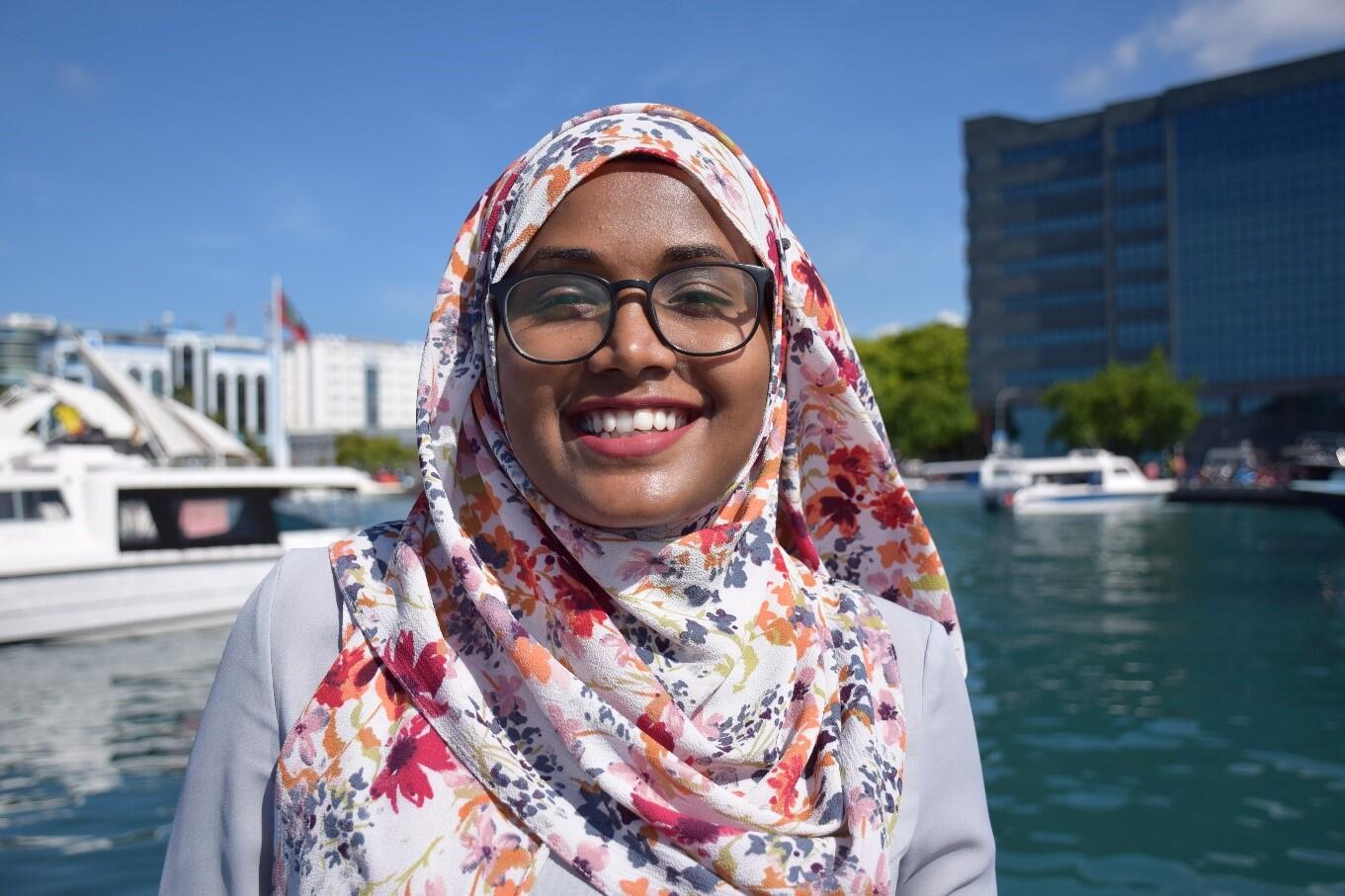I live in Male’ but, because my family is originally from Baa Dhonfanu, I often went there during school holidays. In one of those visits I noticed that my friend’s behavior had changed: she was wearing wide clothes, going through a lot of emotional changes and one day I even saw her crying but nobody talked with or comforted her.
She was in grade 9 and pregnant at the age of 15.
My friend’s story inspired me to become a reproductive health educator.
At the time I had no idea how one could get pregnant but I could see how much she was suffering: she dropped out of school, her family was very upset, everyone on the island - it is a very small community - would talk about what had happened to her. Interestingly, nobody mentioned her boyfriend. It was as if it was her responsibility alone.
I was determined to empower other girls, there was certainly something that we could do to stay in school and plan motherhood for when we were ready.
I didn’t want any of my relatives or friends to go through what my friend did.
When it comes to preventing unwanted pregnancies, information is the key. That also applies to sexually transmitted diseases. I am very proud to create and provide safe space sessions for young people where young people can come and talk about these issues.
Safe Spaces for youth where accurate information is provided are the solution.
When I first got my period I didn’t know what was happening to me. I had so many concerns but my mother didn’t answer my questions, she simply offered me a pad and told me to use it. At school I was not comfortable enough to talk about these issues so one day I googled “period” (she laughs) and learned everything I could about the menstrual cycle and how the body works.
Then I started to educate my sisters.
‘You will get your period and this is what will be happening to your body’, I would tell them.
I have a stepmother and my real mother, four siblings from my real mom and three siblings from my stepmother. We are all girls and my sisters also wanted to learn about their reproductive health.
When I was 18 years old I applied for a position at the sexual and reproductive health department and was selected for the job. I was very shy but learned quickly. I facilitated sessions for parents at school who were 40-45 years old, they would say ‘you are too young, why are you even talking about this?’. I would reply that it doesn’t matter how young you are. It kind of motivated me to prove that I could do the job and be good at it. In the end, they were very happy to see a very young face talk about family planning, reproductive health, etc.
I am a reproductive health educator at Society for Health Education (SHE).
At SHE we provide sexual and reproductive health information and services such as Family planning, STIs and HIV prevention, pre-natal and post-natal care and comprehensive sexuality education for young people.
I married four years ago but only now I decided to have my first child. I hope that my daughter’s generation will have it easier when it comes to access reproductive health and rights. I want her to make informed decisions about her body and life. It’s so important, so empowering!
As for my friend, for many years she was in my mind. When I started working I invited her to come to my office where I told her everything I had learned about preventing unwanted pregnancies. She is married now and I know that she, as many other girls in Maldives, would never become a teen mother if they have had access to sexual and reproductive health information and services.
***
Good sexual and reproductive health is a state of complete physical, mental and social well-being in all matters relating to the reproductive system. It implies that people are able to have a satisfying and safe sex life, the capability to reproduce, and the freedom to decide if, when, and how often to do so.
To maintain one’s sexual and reproductive health, people need access to accurate information and the safe, effective, affordable and acceptable contraception method of their choice. They must be informed and empowered to protect themselves from sexually transmitted infections. And when they decide to have children, women must have access to services that can help them have a fit pregnancy, safe delivery and healthy baby.
Every individual has the right to make their own choices about their sexual and reproductive health. UNFPA, together with a wide range of partners, works toward the goal of universal access to sexual and reproductive health and rights, including family planning.
Azlifa is a UNFPA trained Reproductive Health Educator and is currently working at Society for Health Education (SHE), one of UNFPA’s long standing implementing partners in Maldives.
Text & Photos ©Tatiana Almeida/UNFPA Maldives


